
How to “cure” persistent bloating
0
From serious health problems to poor diet, bloating can be caused by a variety of factors. Because your stomach bulges and hurts, you can sometimes feel uncomfortable even after eating a minimal amount of food.
The doctor shared five simple tips that will help you cope with persistent bloating.
1. Cut down on carbonated drinks
While an icy glass of soda goes great with just about anything, it can wreak havoc on your gut health.
Your gut is home to trillions of bacteria that make up your unique microbiome, which affects your skin, digestive system, and even brain health.
“Having too much bad gut bacteria can cause health problems. Too much sugar can actually feed unhealthy gut bacteria and give you an unhealthy microbiome. So, drinking too much sugary drinks like soda can increase the amount of unhealthy gut bacteria and can then increase bloating,” says the gastroenterologist.
While the best option would be to avoid sugary drinks altogether, the doctor explained that cutting down from two cans to one a day can also make a difference.
2. Eat more fermented foods
From kombucha to sauerkraut, miso to yogurt, fermented foods are packed with beneficial gut bacteria that can help fight bloating and improve the health of your microbiome. The doctor recommended eating fermented foods at least a few times a week to start.
3. Take probiotics
If you're not a fan of fermented foods or can't stand the sour taste, another option is to take a probiotic daily.
“Technically, this shouldn’t replace eating good fermented foods, but a daily probiotic containing at least three to five billion colony-forming units can be beneficial for your gut, gut microbiome, and bloating issues,” the doctor says.
The doctor said many of his patients have seen great results after making just this simple change.
4. Drink peppermint tea
This warming beverage can help with gas and bloating by increasing the movement of food through the digestive tract.
“It basically relaxes the muscles in your digestive tract, and it allows gas to move more freely through your digestive tract. If you have problems with bloating, I would recommend drinking one to two cups a day.”
5. Avoid dairy and gluten
The doctor explained that there is a high percentage of people who are lactose intolerant, and therefore they should avoid dairy products to minimize the risk of bloating. About seven percent of the population also suffers from gluten intolerance.
This is the percentage of people who develop symptoms such as stomach and digestive problems when they eat gluten. They can develop strange itching, rashes, and even muscle and joint pain.
“So if you have a problem with bloating, I would recommend just trying to cut out dairy and gluten for a few weeks and see if your bloating improves.”
However, there is no conclusive evidence that a gluten-free diet will benefit those who do not have gluten intolerance or celiac disease.



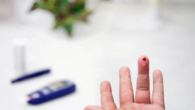
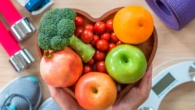

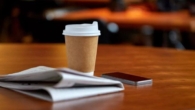
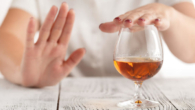
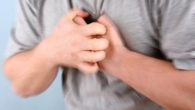
Leave a Reply